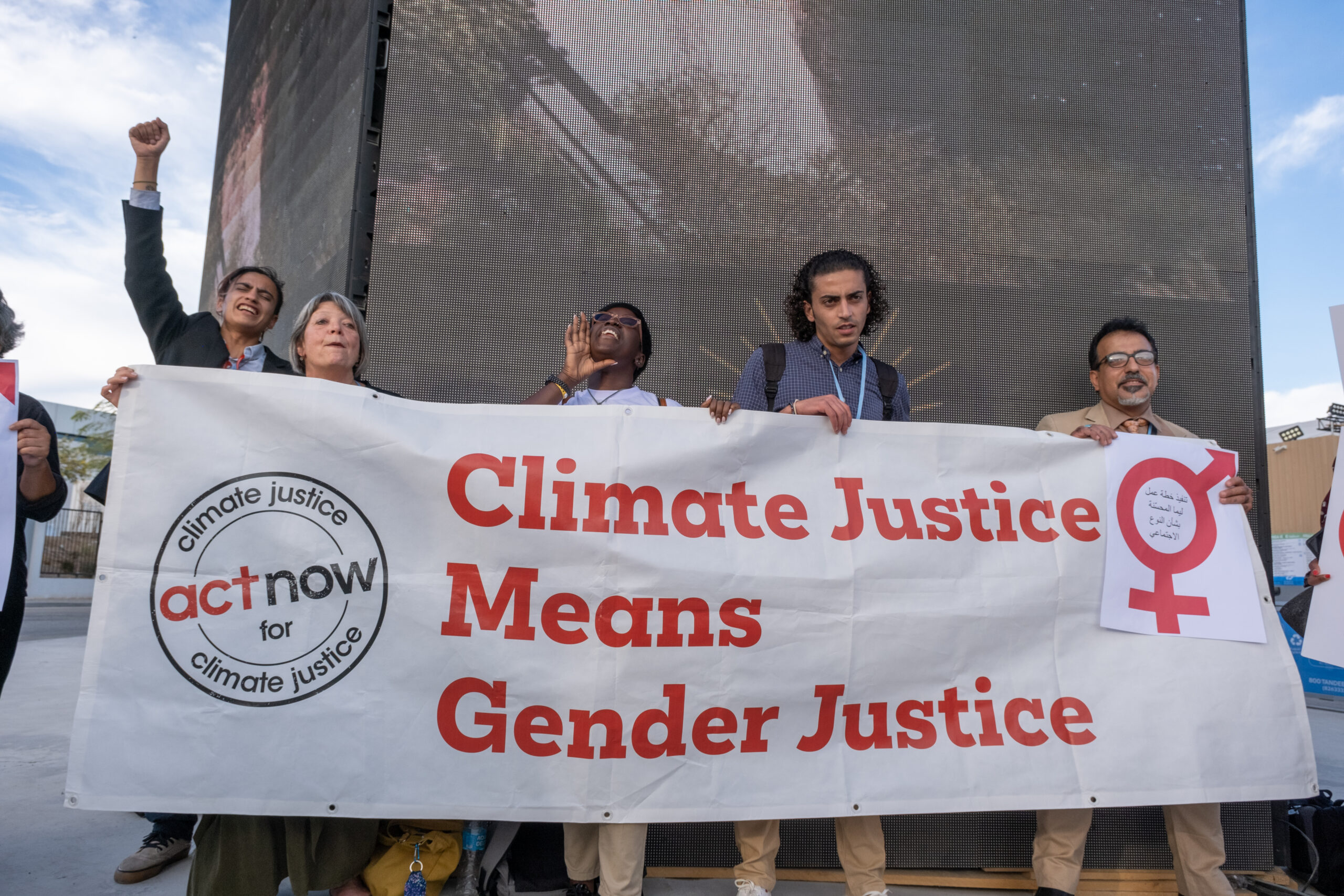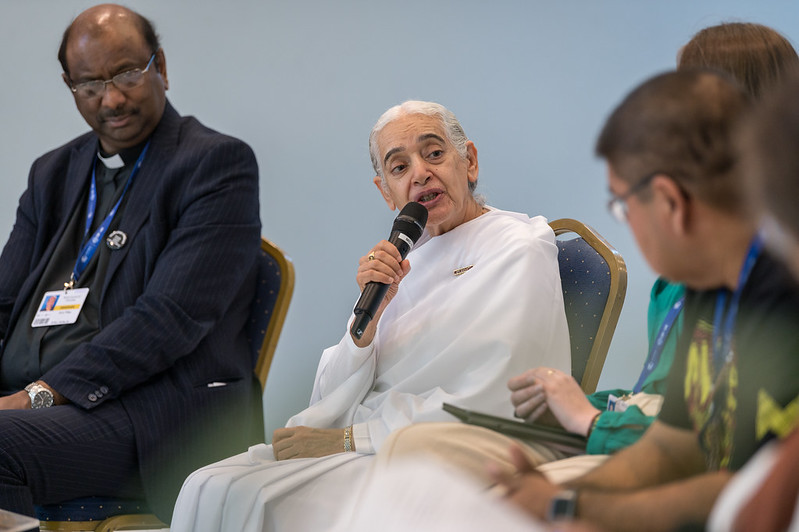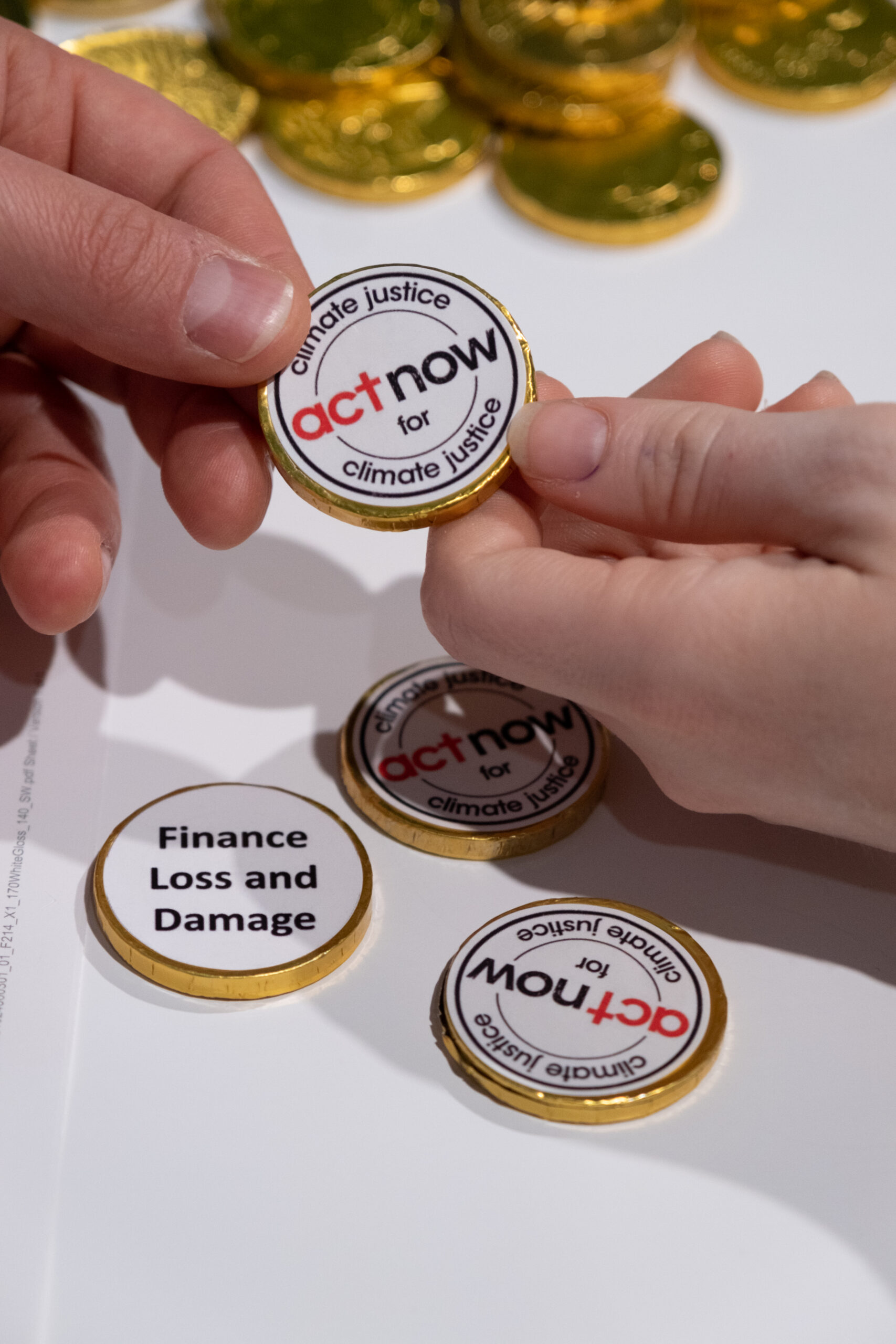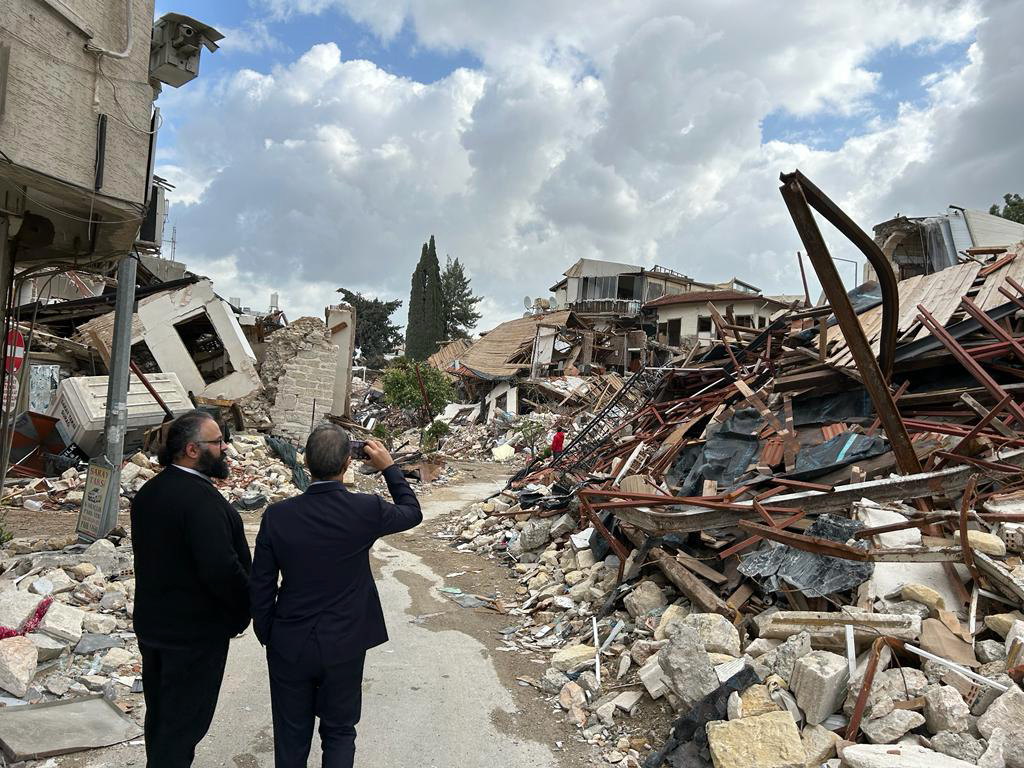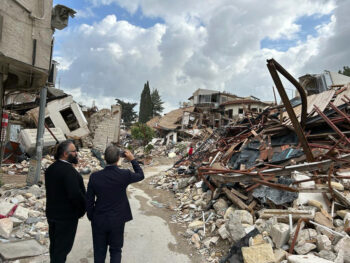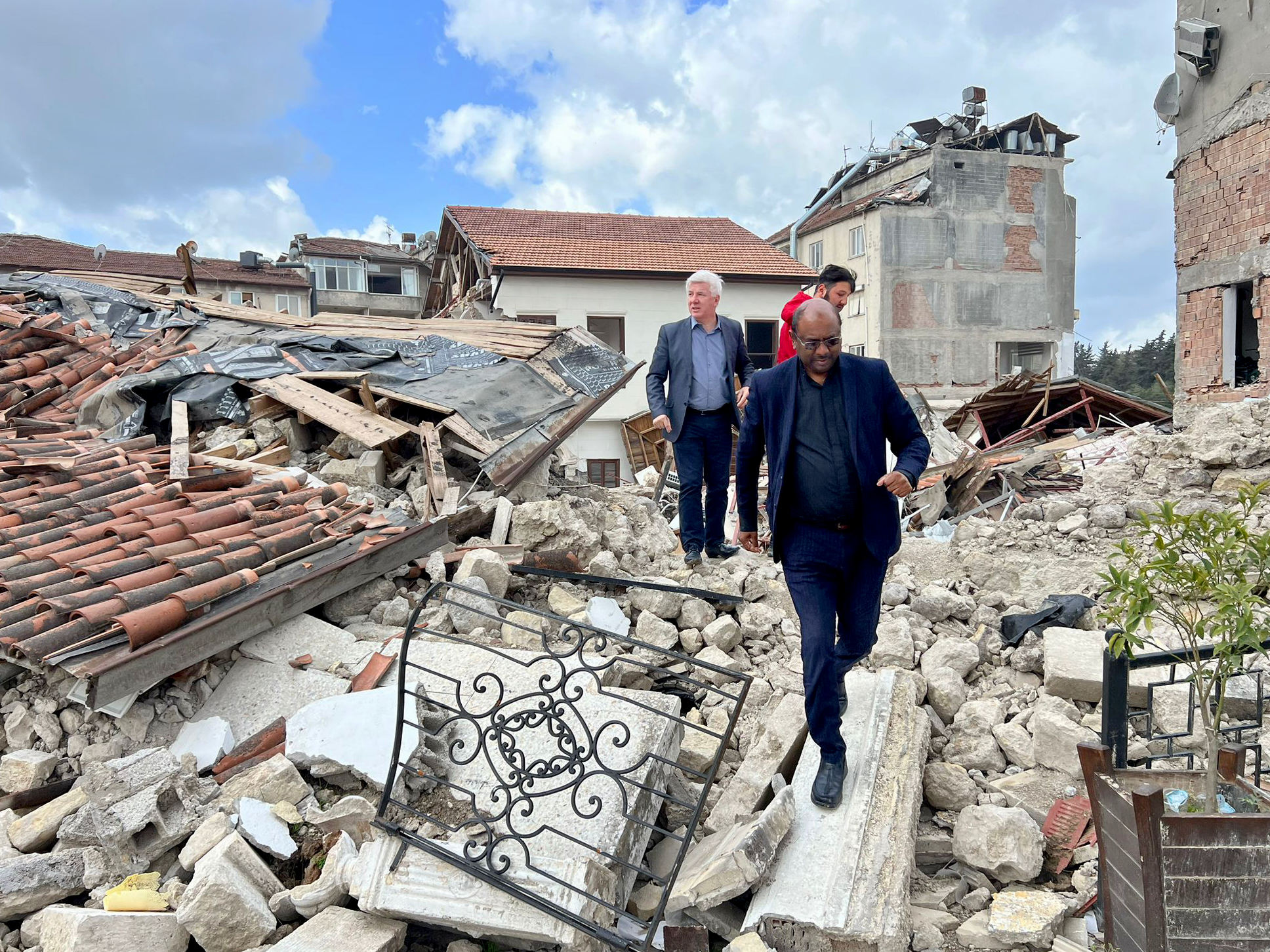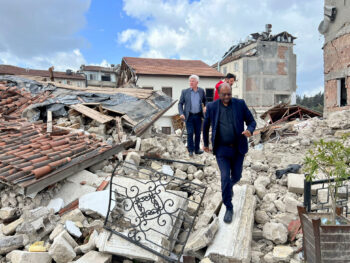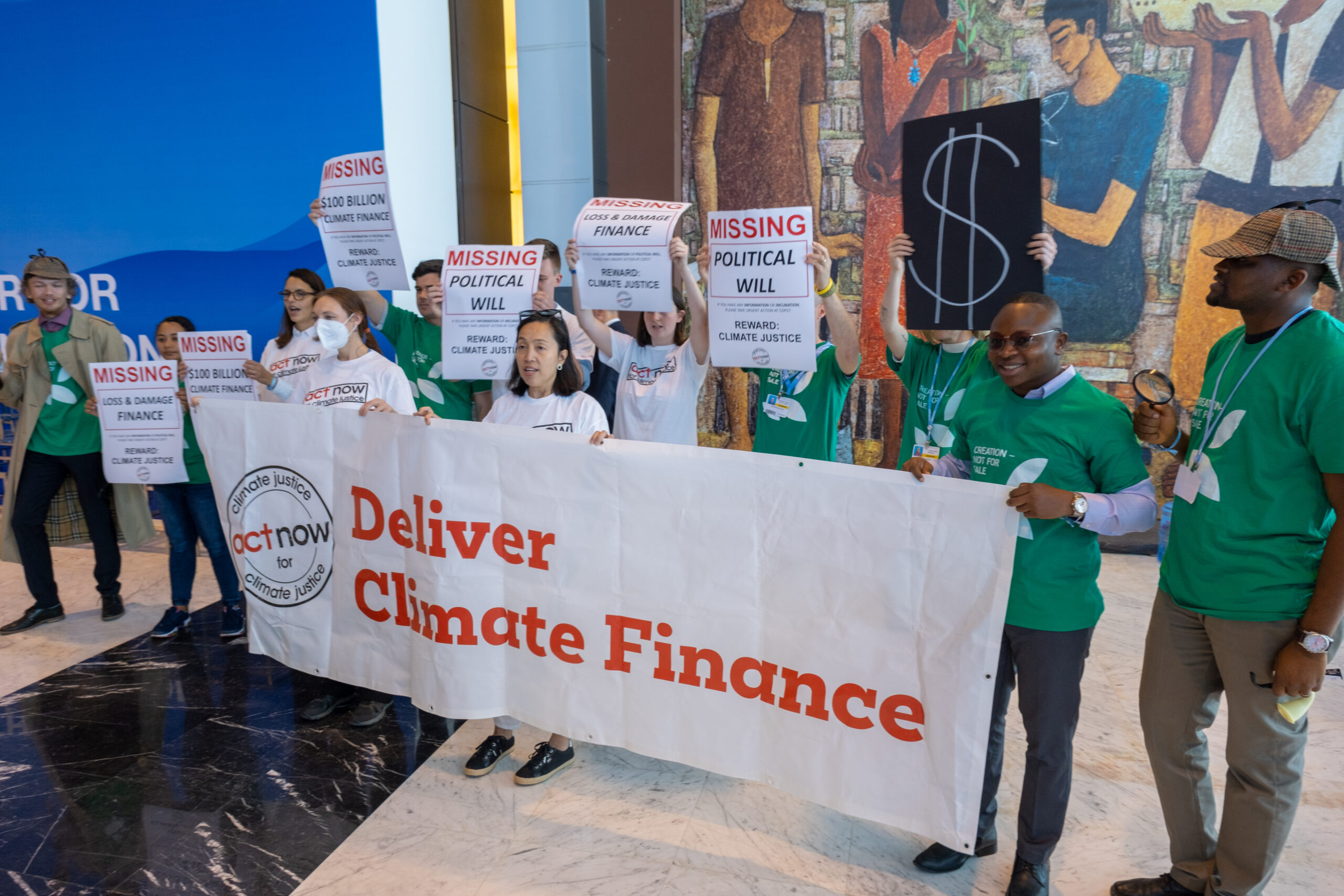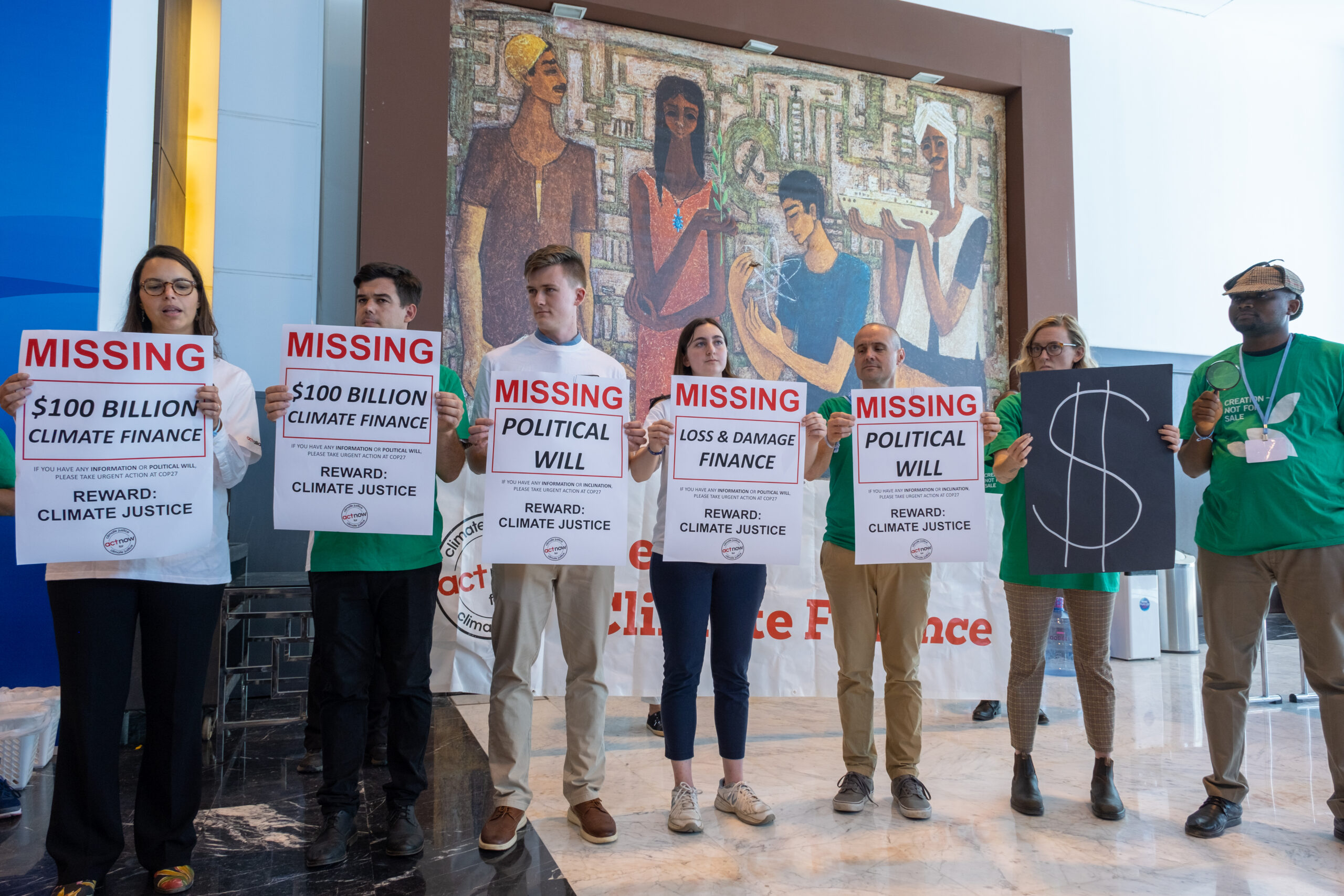Climate-induced loss and damage, situations where adaptation is inadequate or no longer an option, is a growing threat around the world, especially in vulnerable communities. Over 30 years ago small island states tried to bring this topic onto the UN climate agenda. At the end of the UN Climate summit in Egypt, COP27, we can finally celebrate that Parties have agreed to establish a fund and to mobilise support to address these losses and damages.
Mattias Söderberg, co-chair of the ACT Alliance Climate Justice group says: “ACT Alliance is very happy for this political breakthrough. Those most affected by climate change should no longer feel forgotten. The global community has acknowledged their needs and agreed to act.”
“We join all global south negotiators in celebrating the COP27 commitment to a loss and damage facility,” says Rudelmar Bueno de Faria, general secretary of ACT Alliance. “This is the result of their determined action over many years, supported by civil society and faith actors.”
However, there are few other results from the summit to applaud. “As faith actors on the front lines, we see the impact of inaction on God’s creation,” says Bueno de Faria. “We know that urgent action is needed to address the impacts of climate change, which more and more affect the poorest and most vulnerable people, those who have done the least to contribute to climate change. It seems that Parties at COP do not understand or are oblivious to the urgency of the climate emergency.”
Mitigation
Report after report has been released showing that mitigation actions currently announced by the countries of the world are nowhere near ambitious enough to keep global temperature rise to 1.5C. Yet the level of ambition at COP27 to accelerate these efforts slowed rather than increased. ACT is especially missing a clear call for the phase-out of all fossil fuels and clear shift to 100% renewables, which is not too astonishing given the extremely high presence of fossil-fuel lobbyists in Sharm el Sheik.
“It is not acceptable that the rights of Indigenous peoples and human rights have been sidelined in the new agreement on carbon markets,” says Dr. Marianna Leite of ACT Alliance. “Similarly, the back-and-forth on the need to ground solutions in international law and science was appalling. We need to move away from false solutions and call out parties which have been obstructing negotiations and pushing for clearly ineffective solutions such as the so-called ‘circular carbon economy’.”
Adaptation
COP26 in Glasgow laid the path for increased financial support to help communities adapt so they can better survive droughts, storms, and the changing climate. The proposed doubling of adaptation finance would help address the urgent needs of subsistence farmers, fisherfolk, and many other communities.
“It is inexcusable that a year after agreeing to double adaptation finance, that promise cannot be advanced at COP27,” says Kata Kuhnert, youth delegate from the Evangelical Lutheran Church in Canada. “Support to help vulnerable states and communities adapt to more frequent and extreme weather events impacted by climate change cannot wait.”
Gender, Indigenous and Human rights
The rights of women and girls, in all their diversity, as well as the rights of Indigenous peoples and human rights were often sidelined in negotiations. These rights are virtually invisible in the texts agreed upon related to climate finance, mitigation and adaptation. “An intersectional gender lens cannot be an afterthought,” says Manal Shehade, ACT Alliance MENA Gender Community of Practice Chair and COP27 delegate. “The truth is that without finance, there will be no gender transformative climate action and without gender justice there is no climate justice.”
Action that does not address the gendered dimensions of the climate emergency can further exacerbate inequalities. At COP27, we needed to see gender-inclusive policies being mainstreamed. Instead, we witnessed the watering down of language and further delays. The discussions on the Lima Gender Work Programme and its Gender Action Plan were expected to be deferred to Bonn in 2023, due to disagreement between Parties on the related support required. This resulted in a pause in negotiations, and then in the final hours, an ‘agreed’ text was ‘bulldozed’ through.
Finance
The report led by Canada and Germany showed that developed countries had only managed to mobilize USD 83bn per year, rather than the 100bn promised by 2020. The expectation, that a clear plan for delivery of the shortfall so far and how to keep the promise in the upcoming years, would be established, was not met, only a vague call to meet the obligations remained. Efforts by parties to agree on which nations should be contributing funds to finance mitigation, adaptation and loss and damage work led to disagreement as historic emitters and middle-income countries with growing current emissions sparred over who should be included in the category of contributors.
There have been a number of pledges from states towards climate finance, but not at the scale needed to address the critical needs of communities and whether they are additional and new as requested – is questionable. In addition, there was little progress on climate finance, including adaptation and loss and damage finance. Without this finance, the Global South cannot adapt to the climate emergency and the debt situation will get worse.
“At COP27, there has been a lot of political posing with no real change to the status quo or accountability for the wrongs of the past,” says Prof. Cornelia Füllkrug-Weitzel, ACT Alliance Ambassador for Climate Justice. “At the end of the day, if polluters do not commit new and additional finance to tackle the current crisis—without further increasing the debt burden of vulnerable countries — their commitments will be nothing but empty words and they dramatically leave countries alone with the damages they have causes and continue to cause. This is irresponsible and lacks solidarity, regardless of their lip service to it.”
Conclusion
Savanna Sullivan, Program Executive for Youth for the Lutheran World Federation says that “To secure a safe planet for future generations, we need bold decisions for climate justice from all. We need to involve youth in the discussions. Not only do they bring important ideas and perspectives to negotiations and conversations now, but they are also the ones who will be in the room forty years from now. The investment we saw at COP27 in youth leadership and participation is an investment in the future of our planet.”
“Delays in international cooperation mean a delay in action in communities, where people are losing their homes, livelihoods, and even their lives every day. This cannot continue,” concludes Bueno de Faria. “We must keep our eyes on 1.5C and the deep emission cuts needed to get there, and on ensuring that climate justice is at the heart of all the work of this and all COPs.” And, equally important, Bueno de Faria added – “developed countries need to immediately operationalise and, therefore, mobilise new and additional finance for the newly created loss and damage funds.”
